

Flat Rate Shipping
$7.95 flat rate shipping or free over $120


Aussie Owned
Australian family-owned & sourced


School Supplier
Supplier to over 1,000 schools Australia wide
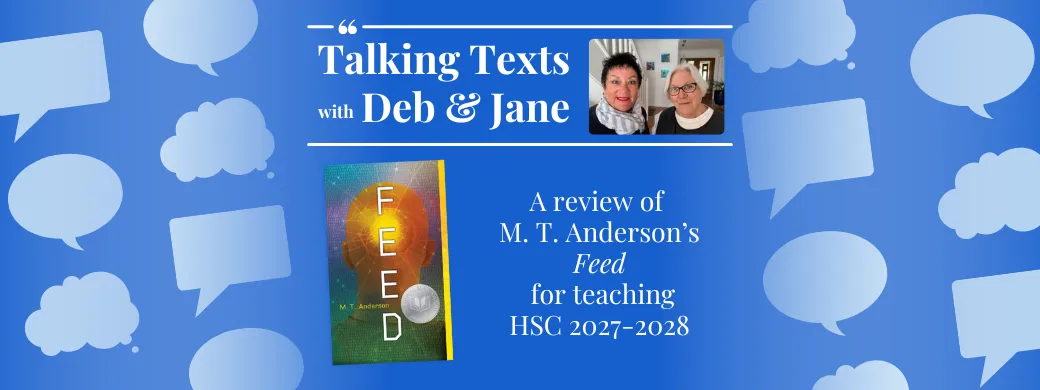
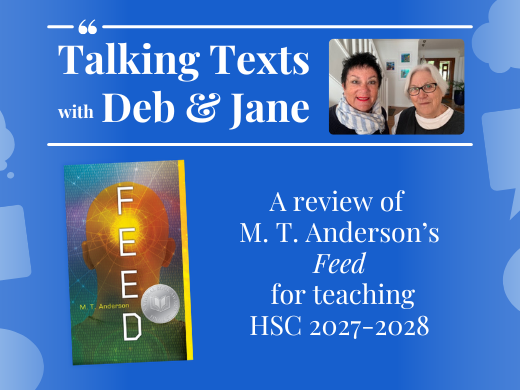
On this future Earth, the environment has been so debased that everyone must live in bubbles and all public institutions have been privatised. Schools ™ are corporatised and trademarked. Since birth, advertisements, censored news and chatter are fed directly into people’s brains via a computer connection (or feed). Titus is our narrator and he and his empty-headed, inarticulate friends go to the moon (the fifty-first state) for a weekend holiday. While at a nightclub their feeds are hacked into by a member of a dissenter group, called the Coalition of Pity, and for a few days they are without their feeds. They are devastated, unable to communicate without their feed and hardly know what to do with themselves.
On the moon, Titus meets home-schooled Violet, a clever teenage girl who is the recipient of a late feed. Titus’ major relationship until Violet comes along is his connection to the feed. When getting to know Violet, Titus is exposed to some ideas and attitudes he has never before contemplated. Violet tries to fit in, but finds the banality of the group off-putting. She tells Titus “You’re the only one of them that uses metaphor”. Violet tries to rebel against the feed and the corporations that control it.
“What I'm doing, what I've been doing over the feed for the last two days, is trying to create a customer profile that's so screwed, no one can market to it. I'm not going to let them catalogue me. I'm going to become invisible."
But Violet’s feed begins to fail. FeedTech and other corporations refuse to repair her feed, effectively condemning her to a painful death. They can't analyse her consumer habits, so she has no credit. Titus breaks up with Violet and distances himself from her. Violet’s father berates him for his heartlessness. Finally, Titus does visit her home and tries to tell stories to her unresponsive body that show he learnt something important from her. Titus cries and an advertisement for jeans rolls out on the page to conclude the novel.
Feed is currently set (2019-26) in Standard Module B Close Study of Literature.
It was previously set (2015-18) in Standard Module C Texts and Society: Elective One Exploring Interactions.
M. T. Anderson is an American writer who challenges readers to look at the world in new ways. He writes for YA readers and for children. Feed won the Los Angeles Times Book Award and was a finalist for the National Book Award. Feed was also named one of the ALA Best Books of the Year. Other YA books include Thirsty, The Astonishing Life of Octavian Nothing, The Assassination of Brangwain Spurge and Landscape with Invisible Hand.
Consider what Anderson said about writing the book by exploring some of the articles in the Press section.
Some examples from the website to get discussion going in the classroom
‘When I was a teenager, I was irritated at the way companies tried to sell me things. All around us, ads and tv shows and movies are showing us images of the high life, playing on our desire to belong. There’s always that subliminal message seducing us and bullying us:
If you just get this, and buy this, and order that, you’ll be cool, and you’ll be loved. See how much fun these kids are having. If you want to be wanted, then you need to want what other people want. And other people – what they want is this. Buy it. Buy it now.’
…
‘This [marketing] has become even more intense (and not just for teens!) now that most of us are connected all the time through devices of one kind or another.’
…
‘I don’t think this would have been an interesting book to write (or to read) if I had only hated the hyper-marketed world I describe. For me, the key to the discomfort is how much I love some of it, how much I still do want to be slick like the people on the tube, beautiful, laughing, surrounded by friends.’
— MT Anderson
Sue Lynch, a former Head Teacher English and senior English marker who taught Feed offers some valuable advice about what students will need before they start reading the novel.
Students really need support to understand elements of satire and irony before they start reading this text. They also need to be able to identify the characteristics of Science Fiction and Dystopian texts, many students didn't understand that this novel is a send up of our society. Perhaps start with a conversation involving teenagers’ jargon. They could write a piece and perform it, others try to work out, what is being said, maybe Goth speak or Punk speak or Computer Nerd speak so they understand the idea of how jargon is used in the text. It was interesting and funny to note that students complained bitterly about the tedium of the word 'like' being used by the teenagers over and over. I asked them to count how many times they heard each other use the word 'like' in conversation, they were in shock!
Introduce students to satire
Satire is the use of ridicule to criticise aspects of human behaviour, especially our weaknesses and follies. It can make us laugh but its purpose is not just to make us laugh but to criticise. The tools of satire are exaggeration, irony, sarcasm, distortion, reversal and parody.
Ask students to suggest films, novels (e.g Animal Farm, Brave New World), and films that are satires e.g. show trailers of Don't Look Up, Catch 22, Life of Brian, Wag the Dog, Dr Strangelove or: How I Learned to Stop Worrying and Love the Bomb, MASH. Distribute copies of the poem The Unknown Citizen by W H Auden and other satiric poetry.
Exaggeration is a key quality of the language of Feed but just how exaggerated is it? The lesions on people’s bodies are a result of the feed but the corporations and government manipulate people to consider them as attractive body art. Look through some of these examples and discuss the way Anderson employs exaggeration
Introduce students to the features of Science Fiction and Dystopian genres
1. Language and education control
In the world of Feed
Titus praises the intervention of the corporations to change and control schools:
“People were really excited when they first came out with feeds … you can be supersmart without ever working … You can look things up automatic, like science and history, like if you want to know which battles of the Civil War George Washington fought in and shit.”
Titus can barely read. He knows nothing of history (George Washington didn't fight in the Civil War because he died nearly 100 years earlier!) or what is happening in his world. He uses the feed to mind chat, watch television and buy the latest things. Titus’s limited language depth is because of his constant diet of advertising jingles and consumer rhetoric delivered by the feed. Advertisements reach him all the time, even in his sleep. The feed is all he has and all he knows. He has no way to distinguish fact from fiction. “We all know they control everything … Everyone feels bad about that. But they’re the only way to get all this stuff ...” (p60)
In our world
Task: Students in groups look for examples to present to a class report
Look for examples in life and literature and where facts are denied e.g. politics, social media, statements, advertisements and conspiracy theories
In literature, for example George Orwell, wrote Nineteen Eighty-Four in 1956 and wrote about the controlling Big Brother in that novel “The party told you to reject the evidence of your eyes and ears. It was their final, most essential command.”
Look for real life examples where language is debased, especially in politics and advertising
Look for real life examples where consumerism and corporations are taking over our lives e.g. slogans, advertisements, scams.
2. Environmental destruction
In the world of Feed
Remember, people don't live in the environment in Feed, they live in hermetically sealed bubbles because the earth is dead and toxic.
Task: In groups students identify and explore some examples of environmental destruction to discuss in a class report e.g. Forests and parks destroyed to create an air factory, a throw- away disposable society steak farms replace cattle, people’s hair falls out.
In our world
The world is under increasing threat from climate change. And the consequences of climate change are here now.
Task: In groups students look for real-life examples where the environment is being damaged e.g. photographs of worldwide plastic pollution, examples of extreme weather patterns and disasters, articles, on climate change, charts of the rise of global temperatures.
3. Consumerism and its impact
The feed is a constant stream of advertising aimed specifically at individuals in the society. It targets their needs and desires and offers them everything they want when they want it.
The novel shows how lives can be controlled and shaped by advertising.
In the world of Feed
Anderson deliberately places advertising in italics throughout the text to mirror the constant intrusions for all those who have the feed. The feed “knows everything you want and hope for … It can tell you how to get them, and help you make buying decisions that are hard. Everything we think and feel is taken in by the corporations … and they make a special profile.”
In our world
Task: In 400 words explain Violet’s outburst to the group and how it relates to the world of Feed and to your world.
“You don’t have the feed. You are feed!
You’re feed! You’re being eaten...
You’re raised for food.” Violet
Write a diary entry chronicling a day in your life and the times you interact with social media, advertising and technology. Reflect on its impact on you and the way you want to live your life.
“When … schools were all like filled with guns and drugs and English teachers who were really pimps and stuff, some of the big media congloms got together and gave all this money and bought the schools so all of them could have computers and pizza for lunch and stuff … Now that School ™ is run by the corporations … we do stuff in classes about how to work technology and how to find bargains and what’s the best way to get a job and how to decorate our bedroom … People were really excited when they first came out with feeds … you can be supersmart without ever working. Everyone is supersmart now. You can look things up automatic, like science and history, like if you want to know which battles of the Civil War George Washington fought in and shit.”
Explain how Anderson’s depiction of the future highlight his concerns for society.
In your response, make detailed reference to the extract from Feed and the novel as a whole.
There are requirements for particular types of texts to be selected from the prescribed texts list for different courses. Great care must be taken in selecting a pathway of texts that meets all the requirements.
In the Standard English course students are required to closely study 3 prescribed texts, with ONE drawn from each of the following categories:
Pathway 1 for HSC Standard English with Feed as prose fiction first choice
Film
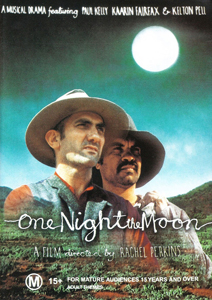

Texts and human experiences:
One Night the Moon directed by Rachel Perkins
Poetry
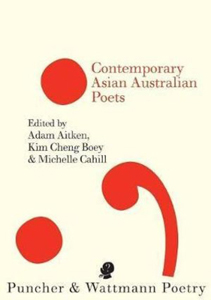

Language, identity and culture:
Contemporary Asian Australian Poets edited by Aitken, Boey & Cahill
Prose Fiction
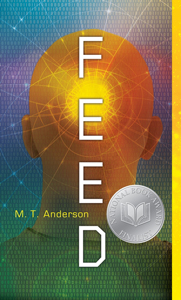

Close study of literature:
Feed by M. T. Anderson
Pathway 2 for HSC Standard English with Feed as prose fiction first choice
Poetry


Texts and human experiences:
Love Poems and Death Threats by Samuel Wagan Watson
Film
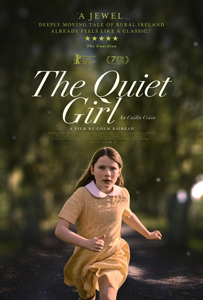

Language, identity and culture:
The Quiet Girl directed by Colm Bairéad
Prose Fiction


Close study of literature:
Feed by M. T. Anderson